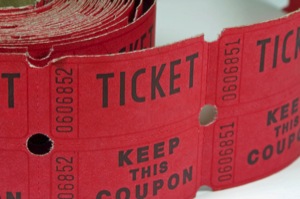
Somewhat surprisingly, this summer’s top cinematic draw for gay men is a political commentary on the plight of the working class.
This film tells the story of a young man who has a dream, but also a credit problem. He’s good with his hands, but the only construction job he can get is non-union, and he has to haggle the foreman up to $20 an hour. To make better money, he takes up with a sleazy entertainer who dangles just enough promises to get him to do all the work. Even when he’s built up a nest egg, he can’t buy himself into enough credit to pursue his dream, so he falls into a dangerous lifestyle of living for the moment. If that doesn’t sound familiar, it’s probably because you were distracted by Channing Tatum taking his clothes off.
Director Steven Soderbergh no doubt knew that Tatum’s butt would get others into movie theater seats, but Magic Mike clearly had a deeper message about a working class life where the future is too bleak to bother planning for. Unfortunately, he made the glitz and glamour so bright that one could hardly make out the critique underneath.
My point is not that you should buy another ticket to Magic Mike so you can drink in the angst. Rather, it is that we should avoid making the same mistake with Pride.
Like Magic Mike, Pride has plenty of shiny things to keep us occupied or distracted. Inevitably, our eyes jump from bar float to bar float, evaluating the next configuration of scantily clad people, throbbing bass, and sparkly giveaways. But in doing so, we sometimes miss the public figures and community activists who pass by with barely a notice, carrying the original message of Pride. Lost in the glitter is the fact that Pride is a commemoration of the events at the Stonewall Inn in late June of 1969. While cities like San Diego have moved the dates of their festivals to create a summer-long chain of Prides across America, some, like New York and San Francisco, hang on to that historic June weekend.
The original Pride events were clearly political. People came out of the closet to say “We’re here!” Given the significant risk of showing up, every early attendee was an activist. Those risks paid off with the election of leaders such as Supervisor Harvey Milk, and later our own councilwoman-assemblywoman-senator, Christine Kehoe. Early Pride participation also paved the way for a festival and parade where we can celebrate, safely, with straight people joining our expression of diversity instead of attacking it. That safety is a blessing, but it has the unfortunate consequence of allowing us to separate the party from the activism.
Not that there is anything wrong with the party. We are at a historic place in the fight for LGBT rights at this very moment. It’s a place to celebrate, but not a place to stop. There’s too much to do. Nationally, we have the chance to win marriage equality at the ballot box in three states (Maine, Washington, and Maryland) and to elect the first openly lesbian senator (Wisconsin Rep. Tammy Baldwin). Locally, we can make Dave Roberts the first openly gay man on the County Board of Supervisors, and replace an unsupportive Rep. Brian Bilbray with straight ally Scott Peters.
Saturday, look for the political contingents among the pomp. Pick one you like, and soon after Pride is over, walk a precinct or staff a phone bank. If everyone at the parade does the same, we can lock up these races and have even more to celebrate next year. Don’t consider it volunteering – consider activism the price of admission to the Pride parade. It’s a better show, and still cheaper than another pair of Magic Mike tickets.











